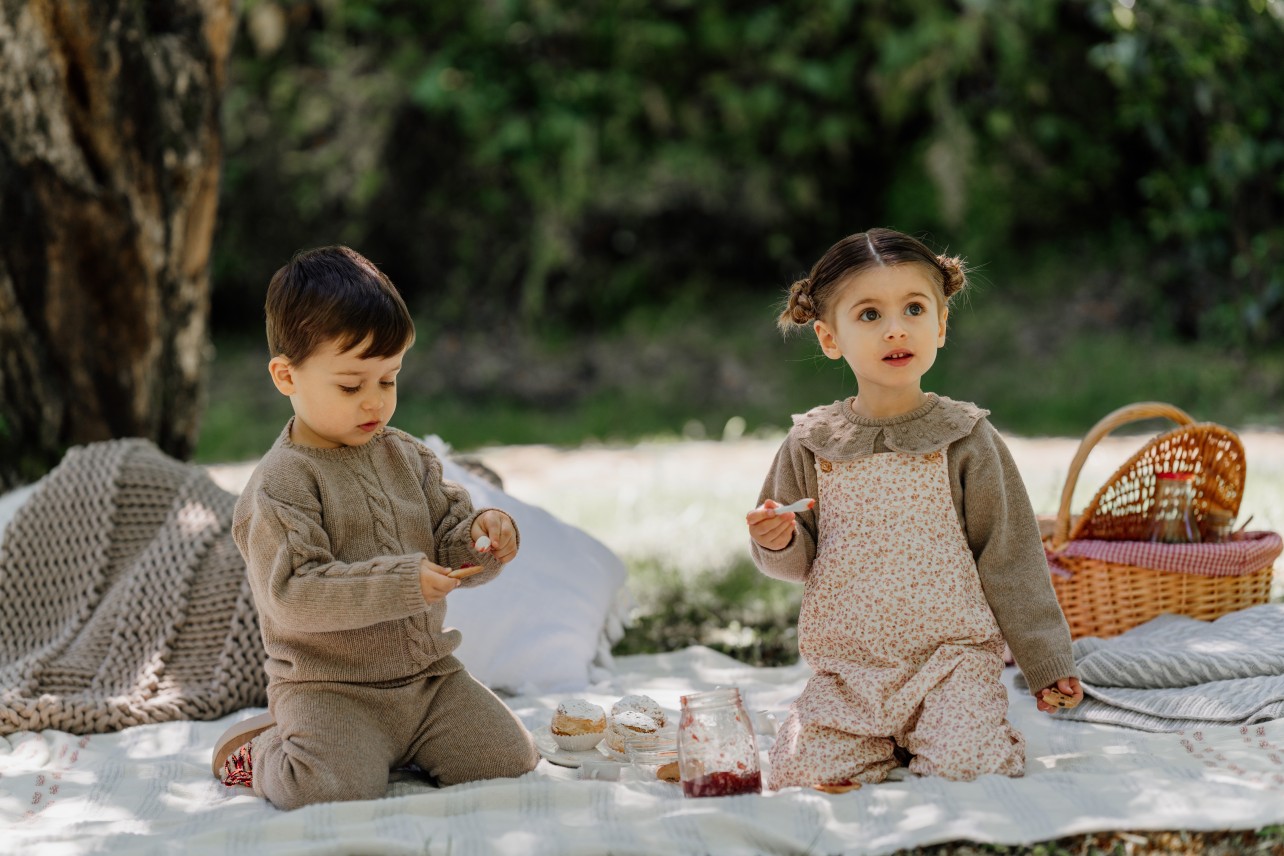On the blog, we have always been concerned and interested in covering topics that are important to us as a brand and, in a way, provide a space for debate and sharing. In contrast to some more serious and necessary topics about motherhood, fatherhood or our children, we want to bring some balance with ‘lighter’ topics, in the sense of addressing some more didactic and funny subjects.
The theme of this publication is the many and few similarities between children and their parents. We think it's such a small thing in this world of parenting, but it is and always will be addressed. If only to be the first thing they say when they see our baby for the first time - ‘he/she looks like their father/mother’.
Raising a family is very important and in certain situations it makes us think about what we are able to see and notice, especially when we see our little ones growing up and developing certain skills.
When we talk about the family context and everything it involves, it's curious to think about certain aspects. One of them is to see how different and yet similar our son or daughter can be from us. Whether it's the same mark on our face, our similar height or physiognomy, or even certain personality traits that can be passed on from parents to their children. It's natural and very funny when you notice it a few years later.
In a more genetic way, the growth and development of children is largely influenced by what our parents pass on to us and how we develop it. A simple example that we can consider is skin type - normally parents have skin that is more sensitive to the sun, and it's very likely that their children will have this particularity, which is why it's important to take all the necessary precautions. Family history is very important when we think about the growth and development of our little ones, as it will lead to certain behaviours and the appearance of situations that can be caused and explained by that family history. It's genetic and that's fine.
Making our approach more behavioural. Yes, we all know that there will always be that one way of dealing with a situation that is very similar to our mum or dad. There's no escaping this reality, and when we realise it, it makes us want to laugh at how true it can be.
Although we are aware that our personality is created and shaped over the course of our growth and experiences, a large part of this process is influenced by what we are taught, the way we have always seen our parents deal with a situation (which, by the way, we often consider to be the best way to do it), and so on. On the other hand, there may be a way in which we choose to approach a situation that may not be the same as what we saw our parents doing, because the situation is handled differently, for example. There's a funny balance here, but it makes perfect sense.
This similarity or lack of similarity between children and their parents comes from various factors. As individuals, we are extremely influenced and shaped by our behaviour in society. Whether it's because we live in a reality with rules and regulations that must be followed or because of assumptions that may or may not be the right ones. This will depend on the environment in which we live, what is passed on to us from an early age and what our habits and experiences are during our growth and development.
Parents are a major influence on children, as they are their parents and the first sources of influence from which they will absorb everything they can - they are their true role models.
In this way, yes, we can have similarities with our parents. Our little ones can be similar to us when we were younger. They may deal with a situation in the same way as their father. They may have certain facial features from their mum. And we have to think it's natural that, throughout our lives, we'll always hear ‘you're just like your mum/dad’.
It's nice to hear these things. We love and admire our parents very much and having the chance to have something with us that reminds us of them is a privilege.
Well, today we're writing this post as a reflection. We think it's because we're talking about parents and their connection with their little ones. It's quite complex and very, very interesting. We will certainly return to these themes. We want to delve deeper and perhaps bring you some examples of similarities (or not) between parents and children.
What about you? Have you ever stopped to think how similar your little ones are to you? If you have, what's the biggest difference and what's the biggest similarity? Are you more like father or like mother? What's the best comment you've ever made about your little ones' personalities? We want to know your experience. We want to know your opinion.






